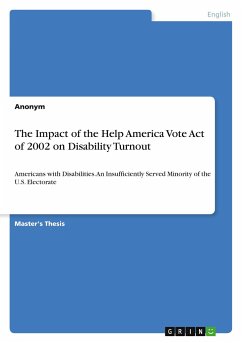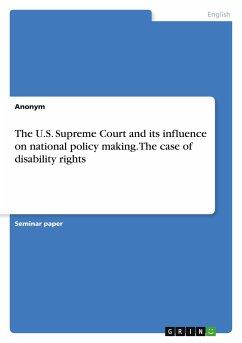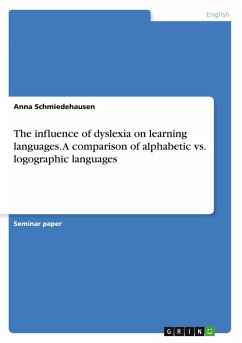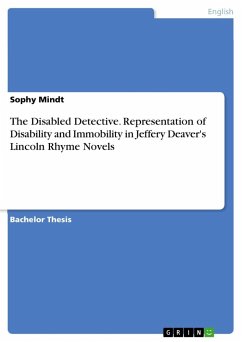Master's Thesis from the year 2017 in the subject American Studies - Culture and Applied Geography, grade: 1,3, Free University of Berlin, language: English, abstract: The thesis explores the impact of the Help America Vote Act (HAVA) of 2002 on the voting participation of people with disabilities in the United States. It argues that HAVA has significantly improved accessibility at polling stations through specific provisions, particularly Section 301, which mandates accessible voting systems. These systems have enabled individuals with disabilities to vote independently and privately, thus addressing a primary form of discrimination at polling stations. The research heavily draws on data and analyses by Professor Lisa A. Schur and colleagues, and uses the policy cycle framework to assess HAVA's effectiveness in increasing voter turnout among this demographic. Three amendments of the U.S. Constitution1 regulate the right to vote for American citizens. The 15th Amendment, which was ratified on February 3, 1870, prohibits disenfranchisement ¿on account of race, color, or previous condition of servitude¿ (Amendment XV, U.S. Constitution). On August 18, 1920, the ratification of the 19th Amendment extended the right to vote to all female citizens of the United States and barred any discrimination of the right to vote on the basis of sex. Almost two centuries after the U.S. Constitution had come into force in 1789, the 26th Amendment was ratified on July 1, 1971 guaranteeing the right to vote to every American citizen over the age of 18. Denial of this right on the basis of age is prohibited. Summarizing these legal provisions laid out in the supreme law of the United States of America, it is, therefore, not within the legal framework to prohibit the right to vote on the basis of race, color, social standard, sex or age. Universal suffrage is believed to have enabled all American citizens to be able to exercise their right to vote.
Hinweis: Dieser Artikel kann nur an eine deutsche Lieferadresse ausgeliefert werden.
Hinweis: Dieser Artikel kann nur an eine deutsche Lieferadresse ausgeliefert werden.








